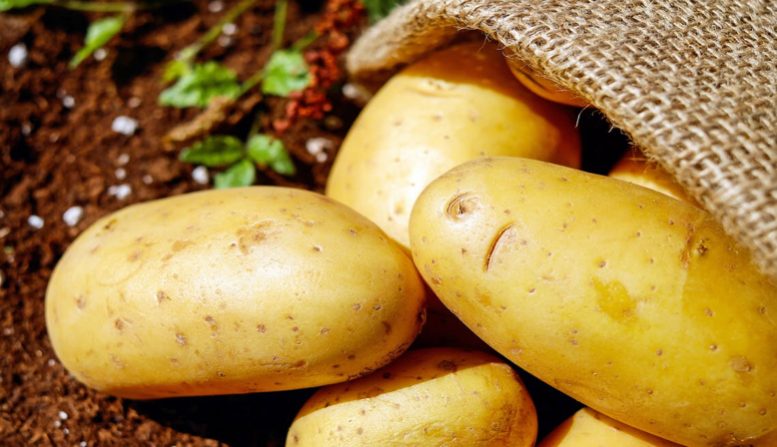A Very Cute Potato Story
One very hot day last term, I joined a school trip to find out all about potatoes. It was an interesting perspective on education, and here is my lightly fictionalized account.
On the bus I sit next to Bethany. She’s a chatty ten-year-old who bounces about on her seat, calling out excitedly to her friends across the aisle every now and then while telling me about her life. She seems genuinely interested in potatoes, which surprises me.
Me and my mum, we both like cooking. My sister doesn’t, but I do. I like potatoes, and pasta too. My favourite way to cook them? I boil them and put butter on. And some salt. It sounds like domestic bliss, but from her casual remarks later, it turns out she’s in temporary foster care and hasn’t seen her mother for a few weeks. She hopes they’ll be back to normal soon.
There’s a commotion. Halfway back down the bus, Ceri has had a nosebleed and needs tissues. It’s all part of the fun and everyone enjoys the brief drama. She makes a full recovery. The first stop is the potato field and we put our wellies on and pile out of the coach. It’s all of ten paces from the roadside to the crop, but there’s a puddle to be navigated and mud to be squelched through, so it’s an adventure. Jo and Rob from the factory are waiting for us. They’ve already been into the school to explain about potato growing and they test the children’s memory.
“Who remembers what the temperature of the storage area at the factory is?”
“Two point seven degrees!” one of the girls shoots back. Right answer. Rob lifts a potato plant, takes a tuber off and inserts a temperature probe. “We need to know how warm the potatoes are so we know how much we’ll need to cool them when they arrive,” he explains. “it’s called taking off the field heat”. Then he explains how these potatoes are still immature, and gives one to each child so they can see how easily the skin rubs off. Bethany makes sure I get one too. We polish our potatoes, with a little help from the puddle, and soon they are gleaming.
Back on the bus, my new friend cradles her potato in her hands. She asks me if it will keep. I say it will, but she needs to put it away in a drawer, because if she leaves it out in the light it will go green and then it will be bad to eat. Her eyes widen. “Really? Can I grow it, then?” Yes, I say, next spring it will sprout and she can plant it. We look at the tiny eyes from which a new plant will grow and the cycle will begin again.
Sophie is still flushed with success from having answered the question about the cold store. “When I said two point seven degrees, it was just a guess!” she says. “No,” says Sir, “what happened was, you were listening carefully when they came to talk to us, and you remembered, even though you didn’t realize you had. Well done.” We share in her pride. The education system works.
We arrive at the factory, cross the concrete yard in bright sunshine and enter a storage shed. The cold and damp are a shock and the height of the building makes it feel like walking into a cathedral, lofty and majestic, with crates reaching up to the roof. We visit the curing shed and the quality control department, then enter a small changing room where we’re given blue hairnets, and for Sir, a beard snood. We wash our hands.
In the main packing area, it’s difficult to hear much above the din, but we get the general idea. Polythene bags are labelled, potatoes are put into them, and off they go in boxes to the shops. There’s a whir of machinery, conveyor belts shuffle forwards, and it’s exactly what you would expect a factory to be.
We’re each given a bag of potatoes to take home, stamped with the name of the farmer and traceable right back to the field.
I chat to Jo at the end. Taking schools round isn’t in anybody’s job description at the factory, but she works in marketing which is the nearest thing, and she and Rob always like to help out when a school asks.
“We don’t normally take them to the field,” she says, “but these kids were so interested, we wanted to show them the whole thing”. As they say goodbye, Rob tells them they were the best school group they’ve ever had.
Then it’s back to school, a little bit wiser about where our food comes from.
Author: Jane Powell
Jane is a freelance writer and education consultant based in Wales, UK. She is interested in how an approach based on values can help us find common ground from which to transform our food system, and she can be found at www.foodsociety.wales.
Subscribe to our newsletter for details on mentorship sessions, workshops, webinars, as well as career and job fairs across Canada and the US!



leave your comment